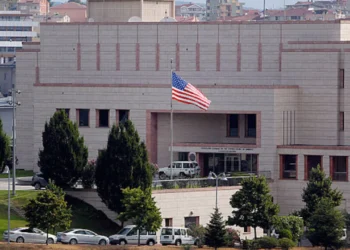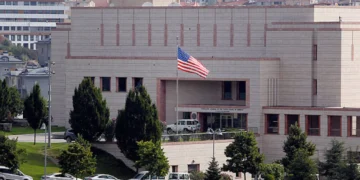The Russia-Ukraine war has had a profound impact on the global economy, particularly in the area of grain supplies. Ukraine, the world’s largest producer and supplier of grains, has been facing significant challenges in maintaining its exports since the war began. Despite these difficulties, the country has continued to push for stability in grain supplies to support both its economy and global food security.
Attack on Civilian Grain Vessel
On Thursday, Ukrainian President Volodymyr Zelenskiy reported that a Russian missile struck a civilian vessel carrying grain from Ukraine after it had already left Ukrainian waters in the Black Sea. This attack was described as “a brazen assault on freedom of navigation and global food security” by Ukrainian Foreign Minister Andrii Sybiha. The incident also raises concerns about the future of grain exports from Ukraine and the broader economic repercussions of the ongoing conflict.
What makes this attack particularly alarming is that Zelenskiy claimed the vessel had left Ukrainian waters and was near Romania’s economic zone at the time of the strike. An industry source confirmed to Reuters that the grain vessel was hit in Romanian waters, near the mouth of the Danube River in the Black Sea. Dmytro Pletenchuk, a spokesman for the Ukrainian navy, also confirmed that the vessel was not within Ukraine’s grain corridor when it was struck.

Broader Implications for Global Food Security
The grain vessel was en route to Egypt when the missile hit, but fortunately, there were no casualties. However, the implications of this attack go far beyond immediate damages. Ukraine plays a crucial role in global food deliveries, particularly to African and Middle Eastern countries. As Zelenskiy pointed out in a post on X (formerly Twitter), “Ukraine’s food deliveries to African and Middle Eastern countries are critical.” This highlights that the attack is not just an assault on Ukraine’s economy, but on global food security as well.
Russia has been targeting Ukrainian resources, aiming to weaken the country’s defense capabilities and cripple its economy. The attack on the grain vessel is another step in this strategy, raising the stakes for Ukraine and its global partners.
Ukraine’s Response and Continued Commitment
Despite the challenges, Zelenskiy remains resolute in protecting Ukraine’s food exports. In his post, he affirmed,
“We will continue to make every effort to safeguard our ports, the Black Sea, and food exports to global markets. Wheat and food security should never be targets for missiles.”
Since August 2023, Ukraine has been exporting approximately four million tonnes of grain per month via its Black Sea shipping corridor. This corridor was established after Russia withdrew from the Black Sea Grain Initiative, which was previously brokered by the United Nations and Turkey. The corridor runs along the western Black Sea coast, near Romania and Bulgaria, and is a vital lifeline for maintaining global grain supplies.
The Bottom Line
The war between Russia and Ukraine continues to have significant global repercussions, particularly in the area of food security. The recent attack on a grain vessel especially outside Ukrainian territory raises a new level of fear, highlighting the vulnerability of supply chains and the broader risks posed to global markets. As Ukraine strives to maintain its exports, the world watches closely, understanding that the stability of food supplies in many regions hinges on the outcome of this conflict.

















